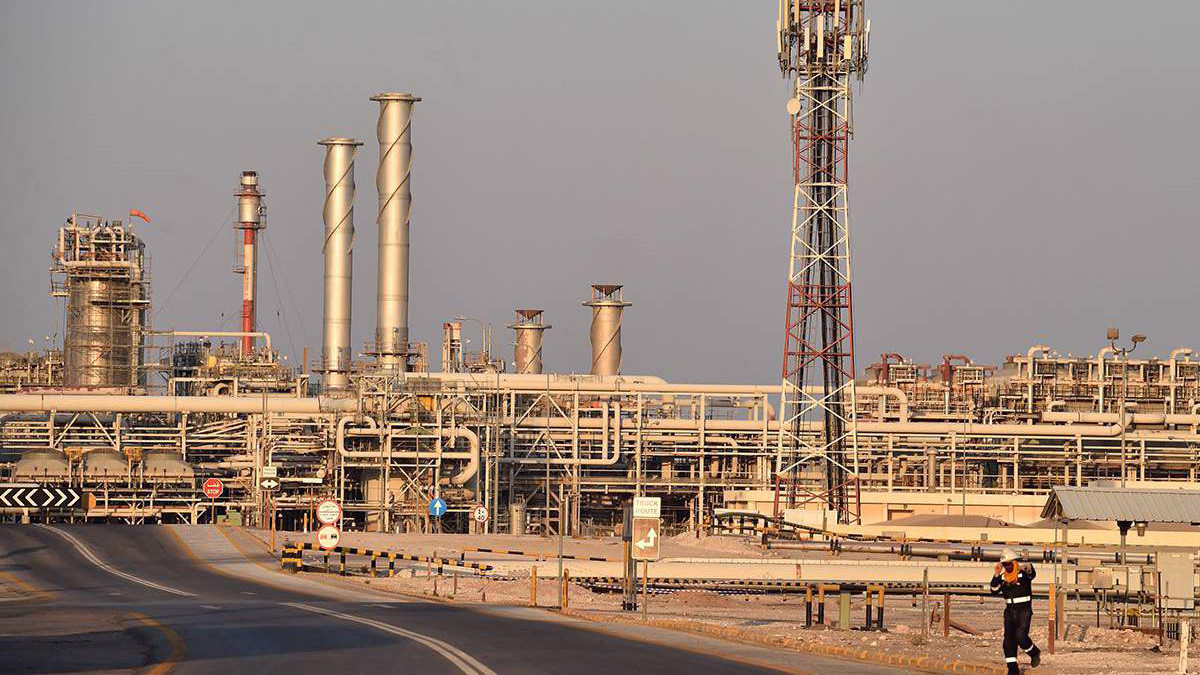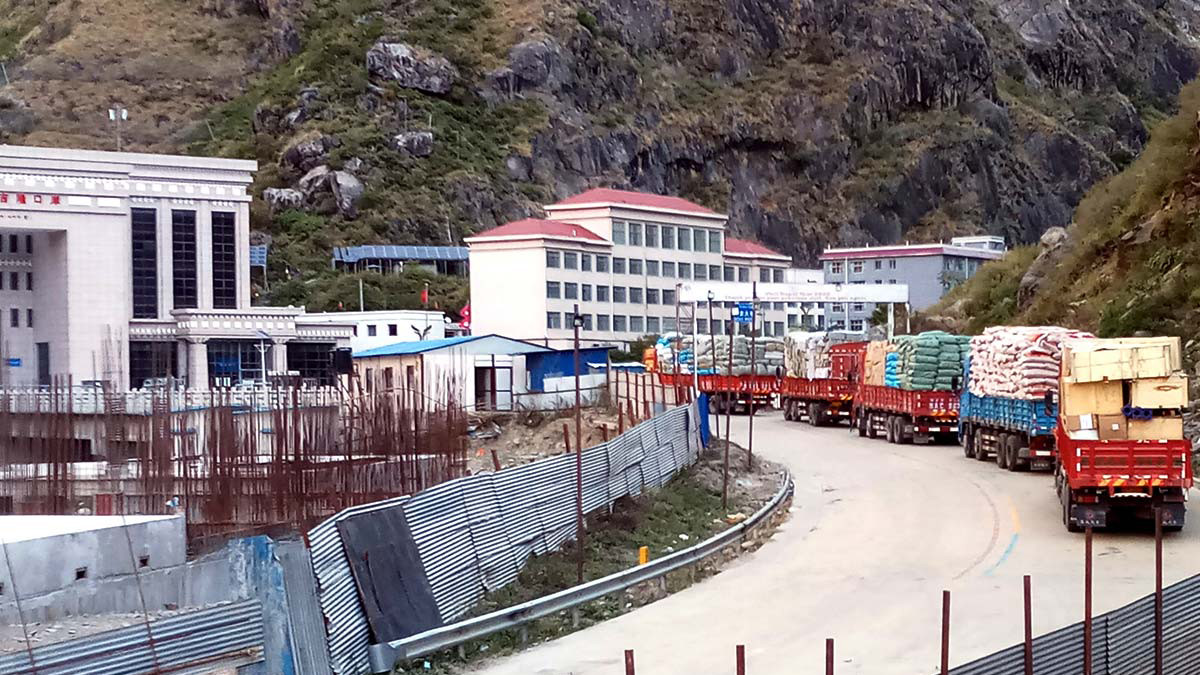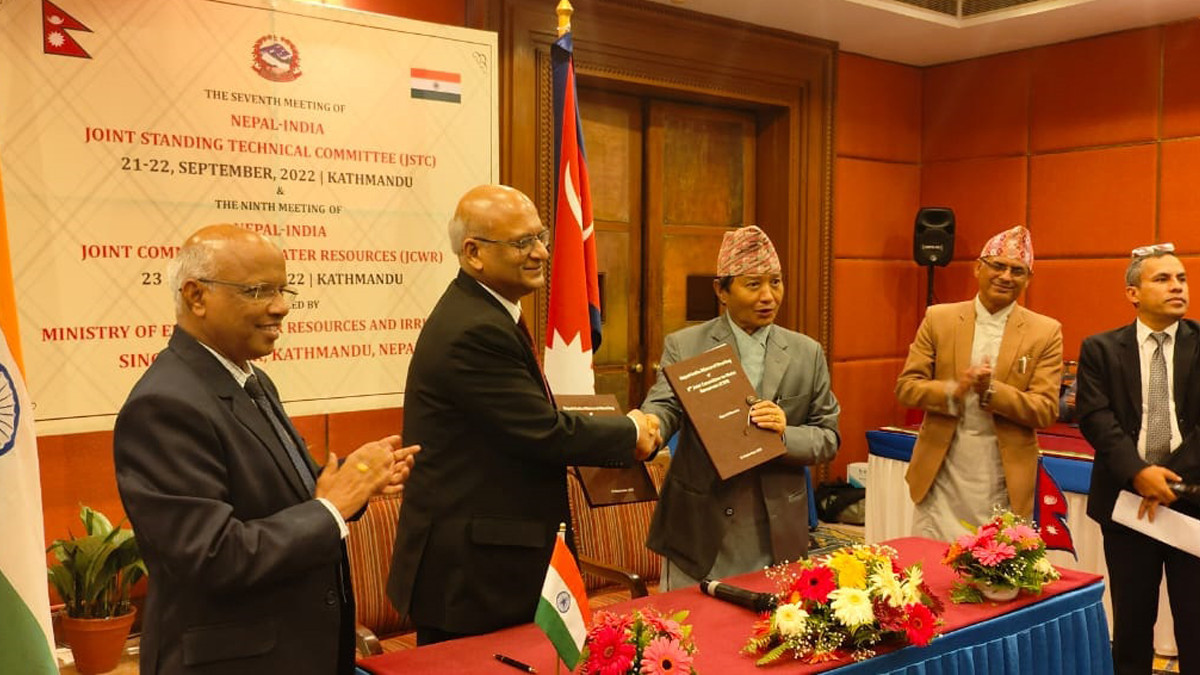 Fayez Nureldine/AFP via Getty Images
Fayez Nureldine/AFP via Getty Images
PARIS – America’s relationship with Saudi Arabia has hit a new low. Following its ban on imports of Russian oil – part of a sweeping set of economic sanctions imposed on Russia in response to its invasion of Ukraine – the United States hopes that Saudi Arabia and the United Arab Emirates will boost production to rein in skyrocketing prices. But Saudi and Emirati leaders have reportedly been declining US President Joe Biden’s calls.
Biden is also looking elsewhere. A US delegation reportedly visited Venezuela – with which the US severed diplomatic relations in 2019 – to discuss the possibility of lifting oil sanctions on the country. But neither Venezuela nor Iran could realistically make up for the loss of around 2.5 million barrels per day of Russian crude. Both countries’ rundown oil fields and national oil companies would need to be revitalized before production could be increased – a process that would take many months, if not years.
For now, Saudi Arabia, which leads the OPEC producers’ cartel, and the UAE are the only two oil producers with significant spare capacity. Only they have the power to stabilize the market, thereby preventing prices from reaching – or even exceeding – $150 per barrel. This puts Biden in a quandary.
The Biden administration has never been on great terms with the Saudi leadership. Last year, Biden ordered the release of an intelligence report that directly implicated Saudi Crown Prince Mohammed bin Salman (MBS) in the murder of the dissident Saudi journalist Jamal Khashoggi at the Kingdom’s consulate in Istanbul. Although Biden did not directly penalize MBS – a decision that drew much criticism at home – the report’s release, and Biden’s description of Saudi Arabia as a “pariah” state with “no redeeming social value,” was hardly welcomed by the Saudis. By criticizing Saudi Arabia’s human-rights record, the US appeared to be attempting to weigh in on the royal succession, thereby infringing on the Kingdom’s sovereignty.
But Saudi Arabia’s unwillingness to accommodate America’s request to increase oil production does not reflect a mere grudge against Biden. US-Saudi relations were on a downward trajectory long before Biden became president. The relationship began to sour after the terrorist attacks of September 11, 2001, and the calamitous US invasion of Iraq in 2003, which the Kingdom opposed, made matters worse.
The deterioration accelerated during Barack Obama’s presidency, owing not least to his administration’s much-touted “pivot to Asia,” which America’s Middle East allies perceived as abandonment. Add to that America’s pursuit of a nuclear deal with Iran – reached in 2015 – and the Saudis came to believe that the US was rejecting their longstanding strategic alliance.
While Obama’s successor, Donald Trump, maintained good personal relations with MBS, the bilateral relationship continued to decline under his leadership as well. Not only did the US decide not to defend Saudi Arabia from Iran’s 2019 attack on its central oil facilities, which temporarily knocked out 50% of the Kingdom’s production; it did not punish Iran. Moreover, Trump regularly insulted the Kingdom for its inability to defend itself militarily and depicted it as a cash cow for the US arms industry.
Throughout Trump’s presidency, Saudi Arabia was deepening its relationship with Russia. This process began at the end of 2016, just before Trump was inaugurated, with OPEC and Russia reaching an agreement to cut oil production. Saudi Arabia and Russia continued to coordinate on production quotas through the OPEC+ pact for three years.
But in March 2020, with the COVID-19 pandemic having slashed global demand for oil, OPEC+ demanded big output cuts, and Russia refused. So, Saudi Arabia flooded the market, ultimately forcing Russia back into the OPEC+ agreement. (The current OPEC+ policy of increasing production by 400,000 barrels per day is a continuation of this agreement.)
Beyond coordination of oil-output targets, the Saudi-Russia relationship now entails financial and political arrangements. In Saudi Arabia’s view, Russia is both a potential arms supplier and the one major country that can exert pressure on Iran. And, in fact, Russia has effectively turned negotiations for a new Iran nuclear deal into a hostage of the Kremlin’s effort to gain sanctions relief.
Russia is not the only country Saudi Arabia hopes can act as a hedge against deteriorating relations with the US. The Kingdom has also cultivated closer relations with France and the United Kingdom, especially by increasing its arms purchases. Saudi Arabia is also pursuing joint ventures with China and others to produce weapons systems locally.
Meanwhile, the US has erected barriers to the sale of military hardware to Saudi Arabia (and the UAE), while refusing to offer intelligence and logistics support in Yemen, where the Kingdom and its allies are attempting to prevent the Iran-backed Houthis from taking control of the country. To be sure, Saudi Arabia and the UAE have perpetrated their share of violence. But the Biden administration appears not to appreciate the seriousness of the strategic threat a Houthi takeover would pose to the Gulf countries.
None of this has made Saudi Arabia particularly amenable to American entreaties. So, just as the Kingdom refused to accommodate the Biden administration’s request to increase oil production last November – an apparent bid to drive down prices, thereby improving the Democrats’ chances in this year’s mid-term elections – it is likely to refuse Biden’s request today.
When the Saudis increase output, it will be because doing so is in their own interest. They will not risk alienating Russia by taking America’s side. But they will not risk their own economic future, either. Saudi Arabia’s leaders have internalized the lessons of the 1970s, when high prices led to decreased demand for oil. The last thing they want is to motivate the US and its allies to accelerate the adoption of renewables. The only question is the price at which they will be motivated to act.
Bernard Haykel, Professor of Near Eastern Studies and Director of the Institute for the Transregional Study of the Contemporary Middle East, North Africa, and Central Asia at Princeton University, is co-editor (with Thomas Hegghammer) of Saudi Arabia in Transition.
Copyright: Project Syndicate, 2022.
www.project-syndicate.org

 Bernard Haykel
Bernard Haykel








